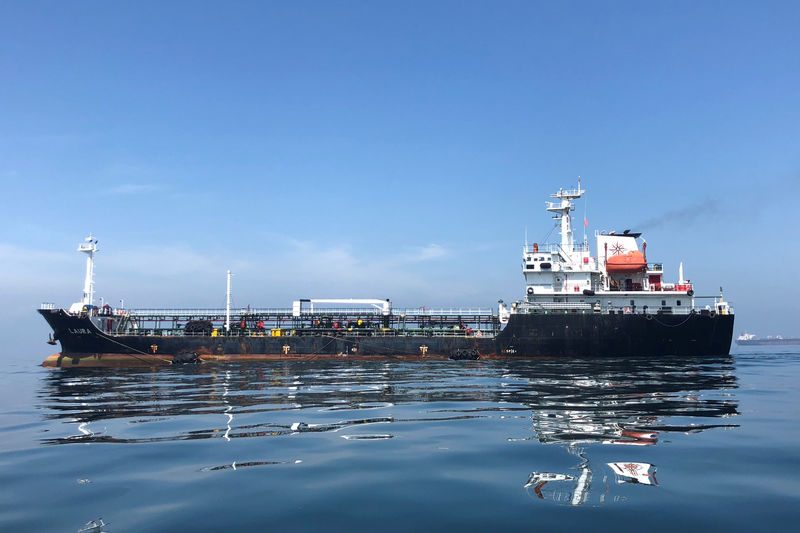By Amanda Cooper and Alex Lawler
LONDON (Reuters) - There is ample spare capacity in other oil producers and strategic reserves to compensate for a loss of Venezuela's crude exports, helping explain the tepid reaction of global oil prices to U.S. sanctions announced a week ago.
Venezuela exports around 1 million barrels of oil per day, about 1 percent of global production, of which half heads to the United States. Many U.S. refineries are designed to run heavier, sour grades of crude, a good portion of which comes from Venezuela.
Top oil exporter Saudi Arabia could replace this volume from spare capacity of about 1.8 million bpd, and other members of the Organization of the Petroleum Exporting Countries such as the United Arab Emirates and Kuwait are also able to pump more after an OPEC-led supply cut began in January.
Venezuela is one of the founding OPEC members and was once a top three producer but production has been in decline for years following the collapse of the country's economy. Together with Libya and Iran, it is exempt from the latest OPEC-led supply cut.
That earlier decline makes the potential loss of Venezuelan exports less significant. Brent crude, the global benchmark, was trading below $63 a barrel on Tuesday compared to $61 on Jan. 29, the day after the United States imposed sanctions on Venezuelan state oil firm PDVSA.
"Cutting out Venezuela from the global oil markets would provide a short term positive strength to oil prices, but its significance would be limited," said Mihir Kapadia, chief executive of Sun Global Investments.
"The U.S. would look elsewhere for oil imports, and refiners will adapt to it."
(Graphic: OPEC's spare oil production capacity dwarfs Venezuela's output link: https://tmsnrt.rs/2tf1xaJ).
In contrast, a 2002-2003 strike against former President Hugo Chavez's government cut supplies and boosted prices to then outrageous levels above $30 a barrel, prompting Saudi Arabia to step in to avert a supply shortage.
In addition to other producers being able to pump more oil, the United States holds about 650 million barrels of crude in its Strategic Petroleum Reserve, which oil executives expect President Donald Trump would tap if prices spiked.
Two-thirds of the total volume in the SPR is sour crude.
"The market reaction is quite subdued," a senior oil industry official said. "There is plenty of spare capacity plus the SPR if needed. Trump will not allow prices to rise sharply."

(Graphic: US strategic petroleum reserves by storage site link: https://tmsnrt.rs/2t3upCw).